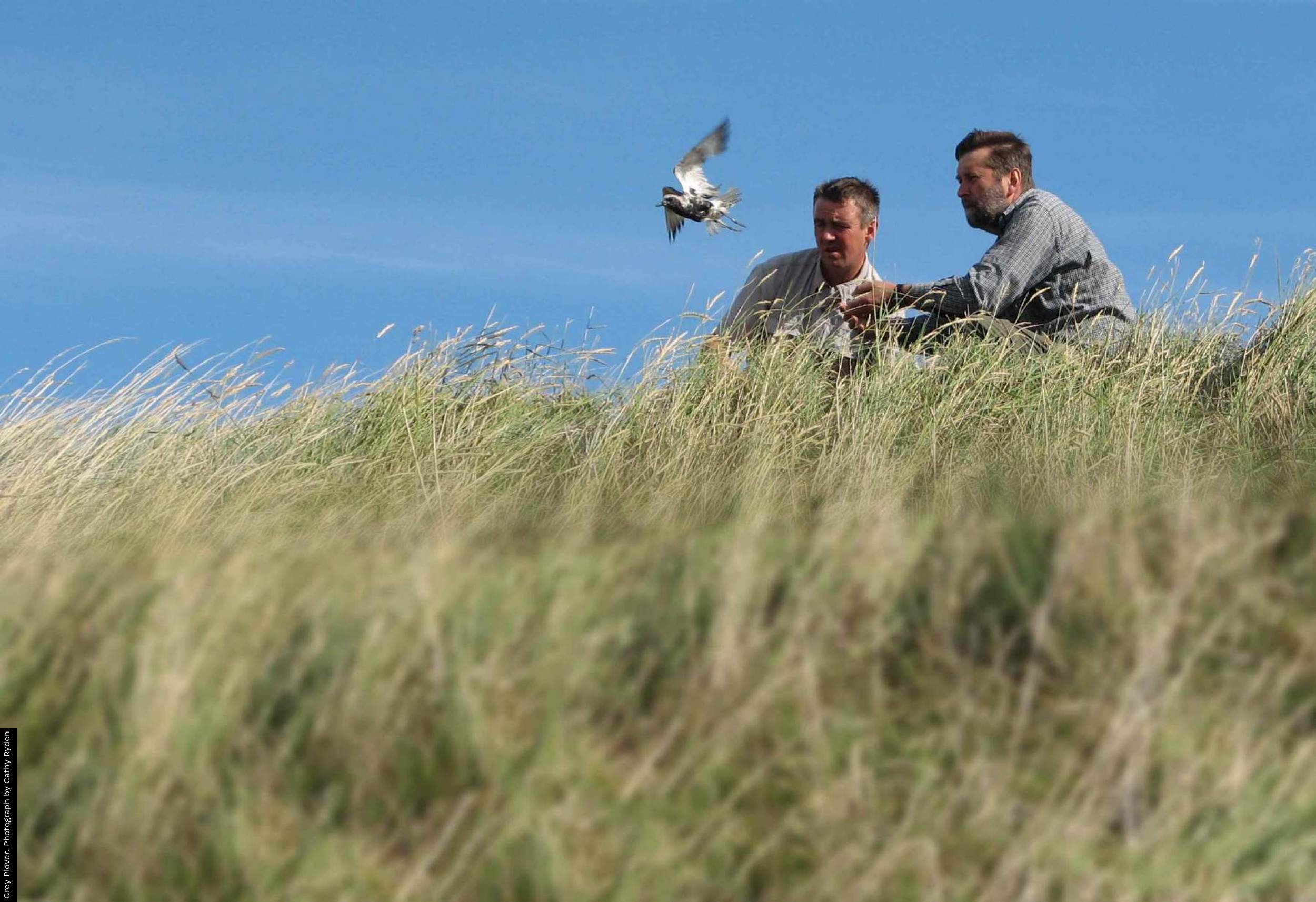Code of Good Scientific Practice
BTO science covers the monitoring of biodiversity status and trends, and research to understand the causes of change, ecological processes and what is required to manage species and habitats sustainably. Our impact beyond academic outputs is wide-ranging, from local land-management decisions to national policy. We therefore expect our scientific work to be conducted to the highest standards.
Introduction to the Code of Good Scientific Practice
This policy is a statement of the principles upon which we base our work. Staff should also be aware of the Trust’s procedures for dealing with scientific misconduct (Staff Handbook section 3.10A).
It is further recommended that scientific staff should familiarise themselves with the 2003 Defra Joint Code of Practice for Research and the UK Research Integrity Office Code of Practice for Research.
Professional standards should be maintained at all times.
This relates to all stages of the scientific process, including applications for funding, project planning and management, project design, data collection, data analysis, interpretation and reporting of findings, and reviewing the scientific work of others.
All our research must be ethical.
Adverse impacts on people, the environment and birds and other animals should always be avoided and all research should follow our Code of Ethics on Animal Research. Much of our research involves engaging with, and garnering the support of, the public in scientific research. Where our members, volunteers or members of the public are involved in our research, our Code of Citizen Science Research Ethics must be followed.
Project documentation should be maintained so that the history of all projects is available.
This should include the availability of a project plan (usually contained within the application for funding), specific project protocols and records of all project meetings should be kept, particularly where these update, refine or otherwise alter the project methodology or deliverables. Project management should follow the procedures laid down by the BTO’s Statement of Quality Management Process.
Individual responsibilities on projects should be clearly understood and recorded.
Changes in responsibility should be recorded and major changes agreed with the project funder.
Appropriate training should be provided.
Appropriately qualified and experienced staff should be used. Where new skills are needed for staff to undertake the tasks required of them, training should be given or staff provided with the opportunity to upgrade their skills by self-tuition. Extra support, and review of outputs, may be required to ensure that outputs and delivery targets are of sufficient quality.
Project design and methods of data collection and analysis should be appropriate to the project objectives.
Throughout the project, methods (including analytical code) should be reviewed with the Project Manager and, if necessary, others with relevant experience (e.g. of particular statistical techniques). The level of review should be appropriate to the size and scope of the project; a small routine analysis is unlikely to require the same level of scrutiny as a complex, multi-partner project.
Appropriate data verification procedures should be adopted.
Field data and samples must be properly labelled; staff (and where appropriate BTO Regional Representatives) should check quality of data returned by fieldworkers; inputting procedures must incorporate error checks. Data falsification, fabrication or misrepresentation are serious offences and would be treated as fraud (Staff Handbook section 3.10B) and would be subject to normal disciplinary procedures as a case of misconduct (although specific additional provisions may apply; Staff Handbook section 3.10A).
Sources of uncertainty should be appropriately acknowledged.
Thus assumptions should be clearly stated, gaps in data or knowledge identified, and results reported with an appropriate indication of uncertainty (e.g. confidence limits or relative probability of outcome).
Findings should be subject to objective scrutiny.
Findings should always be questioned and others should be involved in this process. This may be achieved informally, through discussions with colleagues as work progresses, as well as formally through project meetings. The efficacy of analytic code should be determined by using test datasets to ensure the expected results are obtained.
Development of project materials should be tracked through the use of a version control system.
This applies particularly to computer code, which may be re-used in future, but also to project reports and other documents where appropriate; guidance is provided in the BTO Science Version Control document. All work should be backed-up regularly, e.g. by using either BTO’s networked drives (accessed through the VPN if home-working), Google Shared Drives, or cloud-based services such as Github.
Confidential Data.
Such data, whether they are personal, sensitive bird information, commercial information or any other type received as confidential, must remain confidential, until such time as the appropriate authority changes their status. Handling and storage of all personal data must adhere to our Privacy Policy.
Data and all relevant project documentation should be properly archived.
Primary data and analytical scripts upon which the final analysis and publication are based should be archived with adequate documentation on completion.
Scientific criticism should be constructive and given within a supportive environment.
Science progresses through legitimate debate, disagreement and criticism. Care needs to be taken to ensure that such criticism is at all times appropriate and supportive, is not personally directed or aggressive, but instead can be received positively and openly by the recipient; see also Staff Handbook (Section 3.3). Cases of inappropriate behavior may be dealt with through disciplinary procedure (Staff Handbook, Section 3.5).
Contributions of others should always be recognised.
The authorship and acknowledgements of publications should be an honest reflection of the contributions of those involved in the project and should be agreed with them, usually at the outset of the project, following the Guide to Authorship Contributions.
Publications should cite other relevant work.
Staff are expected to be aware of related work and to make fair recognition of this work in their publications to an extent appropriate to the scale of the project and resources available. Plagiarism will be considered grounds for disciplinary procedures.
Objectivity and confidentiality should be maintained.
Whenever appropriate, including when reviewing grant applications and scientific publications, staff are expected to (a) disclose any potential conflict of interest, (b) act in a genuinely objective manner, and (c) not pass on the material to any third party without permission.
Members of staff have a duty to report incidents or reasonable suspicions of scientific fraud or misconduct to the Director of Services, who will consider disciplinary procedures (Section 3.5 of the Staff Handbook).
The notification requirements of any relevant Research Council, or other funding body, concerning scientific misconduct, will be complied with, whether or not the alleged scientific misconduct relates to any work being undertaken under the particular Research Council’s or funding body’s grant. The BTO will not support any applications to Research Councils from an individual, nor appoint such people as supervisors, during a period where a prima facie case has been established but the disciplinary proceedings have not yet been concluded.
When appointing new scientific staff, BTO will ask individuals to disclose whether they have been held to have committed scientific misconduct within the last 10 years, or are under formal investigation for any cases of scientific misconduct, in any previous employment. If an individual misrepresents this information then this would be treated as a disciplinary matter.
Provision will be made in contracts with self-employed field staff and scientific subcontractors for adherence to this statement, or an equivalent policy subject to BTO’s agreement.






Share this page